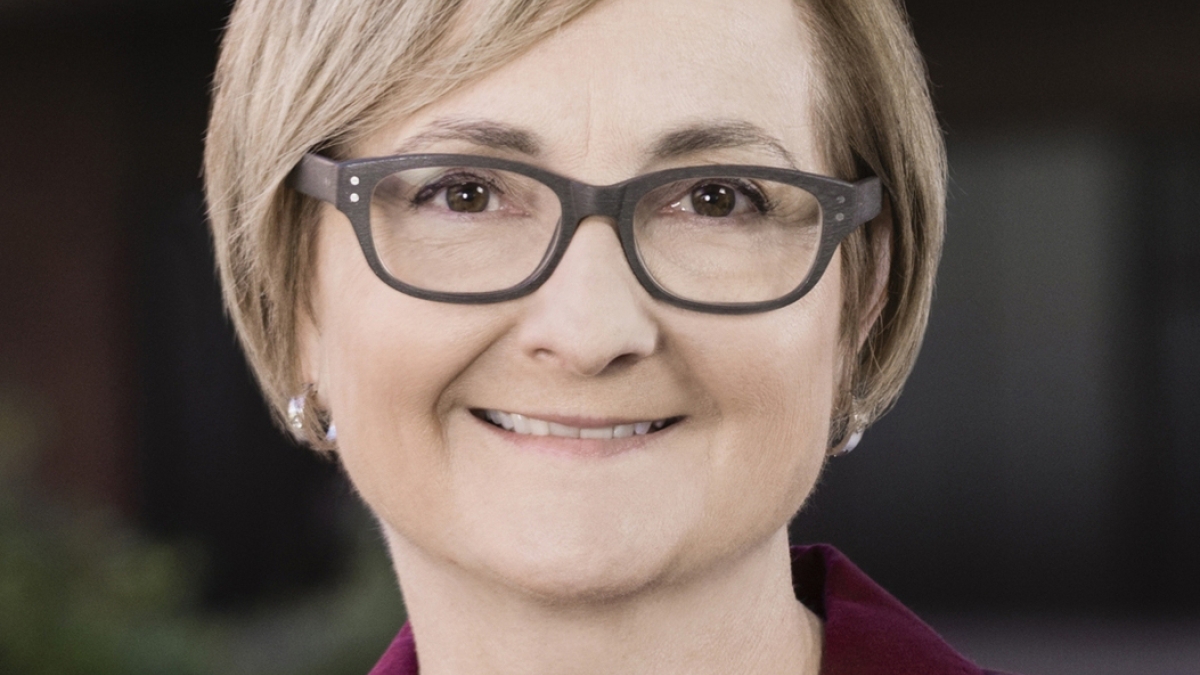W. P. Carey Dean Amy Hillman named vice president-elect of the Academy of Management

W. P. Carey School of Business Dean Amy Hillman.
Amy Hillman, dean of the W. P. Carey School of Business at Arizona State University, has been elected by the membership of the Academy of Management (AOM) to serve as their vice president-elect/program chair-elect.
Hillman, who is also a professor of management and the Charles J. Robel Dean’s Chair, joins AOM for the 2019-20 term as an executive officer for a five-year cycle. She will serve as vice president-elect and program chair-elect of the Academy of Management beginning at the close of the 2021 meeting and will hold that position for the year. The Academy of Management is the premier international organization for faculty of management with more than 20,000 members.
“I am honored to have been elected by my peers within the academy for this leadership role,” said Hillman. “As an active member of AOM for over 20 years, I have served in a variety of roles within the organization, and I am thrilled to have the opportunity to impact the profession in this way. I truly look forward to the next five years.”
Hillman received her doctorate from Texas A&M University in strategic management and business and public policy in 1996 and was named outstanding doctoral alumni by her alma mater in 2008.
Her areas of interest include corporate political strategies, boards of directors and corporate strategy. Her research includes more than 30 peer-reviewed articles published in leading journals such as Academy of Management Review, Academy of Management Journal, Strategic Management Journal, Organization Science and Administrative Science Quarterly. She was elected a fellow of the Academy of Management in 2014 and is a founding fellow of the International Corporate Governance Society.
She is former editor of Academy of Management Review and a former associate editor of Academy of Management Journal. She received the Academy of Management’s Distinguished Educator Award in 2018.
Hillman joined ASU in 2001. An award-winning undergraduate, MBA and doctoral teacher, she previously taught at the Ivey Business School at the University of Western Ontario, the Broad Business School at Michigan State University and the Mays College of Business at Texas A&M University. In addition, she has spent several summers as a guest professor at the Institute for International Management at Johannes Kepler University in Linz, Austria, and taught during her doctoral program at her undergraduate alma mater Trinity University. She has also published seven teaching cases used in classrooms around the world.
Prior to joining academia, Hillman was general manager of a retailing and manufacturing organization in the Southwest United States. Today, she serves on the board of publicly traded CDK Global, on the independent governance committee of U-Haul International, and on the nonprofit boards of AACSB and the ASU Research Park.
About the Board of Governors
The Board of Governors is the primary governing body of the Academy of Management. The academy’s board has legal and fiduciary accountability for the association and primary responsibility for direction setting and policy development. The Board of Governors is composed of 15 individuals, including the president, president-elect, vice president and program chair, vice president-elect and program chair-elect, past president, and nine representatives-at-large, all of whom are elected. The executive director and secretary-treasurer is an ex-officio member of the board.
More Business and entrepreneurship
Sustainability leader and ASU alum honored for transforming business with a people-first approach
Long before Jim Fish ('86 BS in accountancy) became president and CEO of WM — formally Waste Management — in 2016, he…

ASU business students take on the big leagues
Each year, sports fans from across the country flock to Arizona to attend major events like the Waste Management Phoenix Open,…

With help from ASU and a viral TikTok, an entrepreneur soars
Nearly five years ago, Ruben Trujillo saw his entrepreneurial dream slipping away as he wondered how he would pay his rent.Now,…

